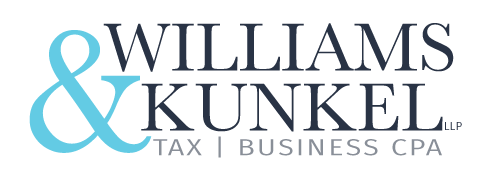If there’s one thing we can generally agree on, it’s that taxes are a major pain. Nobody likes dealing with them, and nobody enjoys filing them. But if you follow these tips, you may find that you not only pay the IRS less money, but will also have an easier time preparing your next return. (DFW Tax Advisors: Rest of the Year Tax Tips)
1. Keep fastidious records
The more meticulous you are at keeping records, the easier it’ll be to file your taxes. Have a filing system that allows you to organize key documents like pay stubs, tax forms, and expenses you’re planning to write off. That last category is especially important if you’re self-employed and plan to deduct some of the costs involved in earning your income.
2. Don’t assume you’ll itemize
Even if you own a home and have had reason to itemize on your tax returns in the past, the tax law that went into effect in 2018 raised the standard deduction substantially. For the 2019 tax year, it’s $12,200 for individuals, $18,350 for heads of household, and $24,400 for married couples filing jointly. This means that if you’re filing a joint return, you need more than $24,400 in itemized deductions to make that option worth it.
3. Take advantage of IRAs and 401(k)s
Retirement savings plans like IRAs and 401(k)s don’t just let you set aside funds for the future; they also allow you to save money at present. In 2019, you can contribute up to $6,000 to an IRA and up to $19,000 to a 401(k) if you’re under 50, and these limits increase to $7,000 and $25,000, respectively, for those 50 and over. Put your money in the traditional version of either account (as opposed to a Roth), and you’ll reduce your taxable income for the year. For example, if you fund a traditional IRA with $4,000, that’s $4,000 the IRS can’t tax you on.
4. Know your tax code changes
The 2018 tax code overhaul brought about a lot of changes that could impact you at present and in the coming years. Reading up on those changes could therefore help you make smart decisions that either save you money or prevent you from facing financial difficulties.
For example, one thing the overhaul did was lower most individual tax brackets so that workers would get more money in their paychecks. In conjunction with this change, the IRS issued new withholding tables for employers to follow. If you don’t review and adjust your withholding, you’ll risk underpaying your taxes and owing the IRS money when you file your next return, so pay attention to this and other changes that could impact you.
5. Find tax-advantaged ways to save and pay for healthcare
Chances are, healthcare is one of your biggest expenses, but you can help make it more affordable by saving for it in a tax-advantaged fashion. You can start by opening a flexible spending account, or FSA, which, this year, allows you to set aside up to $2,700 to pay for qualified medical expenses like doctor visits and prescriptions.
Furthermore, if you’re on a high-deductible health plan (defined as $1,350 or more for individual coverage, or $2,700 or more for family coverage), you can open a health savings account, or HSA, and set aside funds to pay for near-term and long-term coverage. This year’s HSA limits are $3,500 if you’re saving just for yourself, or $7,000 if you’re contributing on behalf of a family. As is the case with a traditional IRA or 401(k), whatever sum you put into an FSA or HSA is money the IRS can’t tax you on, so it pays to capitalize on these accounts.
Call Williams & Kunkel CPA today in Flower Mound at 972-446-1040 to have a chat and find out how you can save money on your taxes as a real estate professional.
In addition, you can connect with us to receive updates throughout the business week by following us on Twitter or LinkedIn or liking us on Facebook.
Source: The Motley Fool

